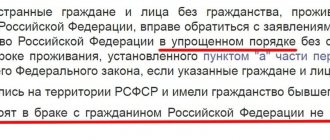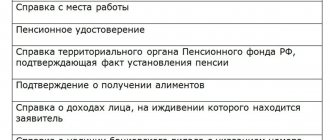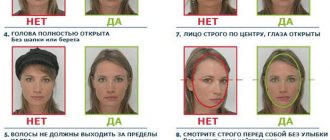Who are LBG
Stateless persons do not have citizenship of any state.
A stateless person in the Russian Federation is, as is clear from the wording, a person who does not have Russian citizenship. At the same time, he does not have evidence that would make it possible to classify him as a citizen of any other state. Another term applied to such people is stateless .
“As of 2021, at least one hundred thousand LBG lived in the Russian Federation,”
— data from the Memorial human rights center.
This figure is the result of the collapse of the Soviet Union. The overwhelming majority of stateless persons in the Russian Federation are former Soviet citizens who, for various reasons, have not received passports from either Russia or another country.
Instructions for those wishing to become citizens of the Russian Federation
Obtaining citizenship of the Russian state for a person who is a stateless person is a rather delicate process. There are many difficult and controversial situations. In general, the instructions for obtaining Russian citizenship for persons of this category in 2021 are presented in three stages:
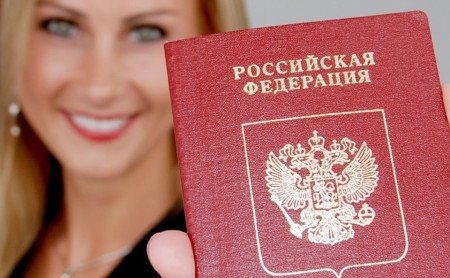
- Confirmation of residence on the territory of the Russian state for a period of five years.
- Belonging to one of the preferential categories.
- Providing a package of necessary documents to the territorial office of the Federal Migration Service.
Stage one
This stage, necessary for obtaining Russian citizenship, is primarily relevant for persons without citizenship. Staying on the territory of the Russian state is considered continuous only when a person has not left the borders of the state for more than 90 days every year for a five-year period.
The period of residence can be counted from the completion of the registration procedure at the location. Do not ignore the procedure for obtaining this important certificate. Also, a person wishing to accept Russian citizenship undertakes to confirm the fact of legal employment and good command of the state language.
Sometimes the five-year residence period is reduced to 12 months or removed altogether. This is relevant for:
- persons who have distinguished themselves by special services to the state;
- persons with high achievements in scientific, technical and cultural fields;
- people whose professional activities are of interest to the state;
- persons in need of protection from persecution;
- persons with refugee status;
- contract employees (service period must be at least three years).
Stage two
The following people have the right to obtain citizenship without a five-year residence period:
- those born in the USSR and who did not receive citizenship of any of the sovereign states after its collapse;
- having a disabled child who is a citizen of the Russian state (the second parent must also be disabled or absent);
- disabled people who are dependent on citizens of the Russian Federation;
- legally married to citizens of the Russian state (more than three years);
- who are WWII veterans.
Stage three
A stateless person who wishes to obtain Russian citizenship is obliged to come to the territorial division of the Federal Migration Service and submit the following documents:

- passport (it can be replaced with any other identification document);
- application form in two copies;
- two high-quality photographs;
- a receipt indicating payment of the state duty;
- a certificate certifying citizenship of the Soviet Union in the past (USSR passport);
- document of a WWII participant.
FMS officers may also ask you to present other documents. The list of references must be clarified in advance.
Features of the simplified procedure
To the list of persons wishing to obtain Russian citizenship in a simplified manner
- citizens of Kyrgyzstan, the Kazakh state and Belarus;
- members of the Compatriot program;
- owners of an individual enterprise that has been operating on the territory of the Russian state for at least three years (the annual profit must be at least 1 million rubles);
- persons capable of investing in the economy (contribution share - from 10%).
Information for citizens of Kyrgyzstan
Nationals of the Kyrgyz state wishing to obtain Russian citizenship are recommended to have a diploma in hand.
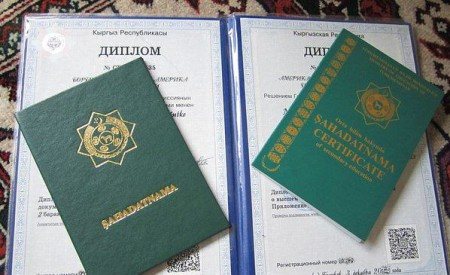
Diplomas from Kyrgyz educational institutions
Otherwise, they will have to obtain Russian citizenship only through the general procedure. If a Kyrgyzstani can present a residence permit, then he can easily obtain Russian citizenship. This is explained by compliance with the requirement of continuous stay on the territory of the Russian state for a five-year period. In total, the entire procedure for citizens of Kyrgyzstan takes from 2 to 4 years.
A residence permit is canceled if, after a two-year period, a person applying for Russian citizenship does not submit a corresponding application.

How stateless persons in the Russian Federation can confirm their identity
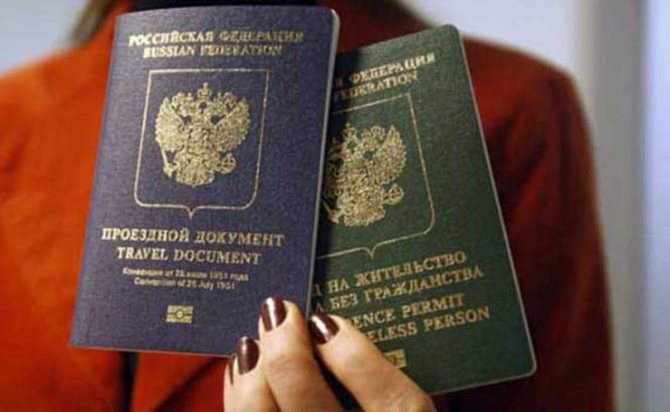
The answer is contained in Article 10 of the Federal Law-115 “On the legal status of foreign citizens in Russia.” As an identification document for a stateless person, Russia recognizes:
- LBG identity card , which was issued on the territory of a foreign state;
- temporary residence permit. If a stateless person in the Russian Federation applies for a temporary residence permit, then he is given a document - a temporary residence permit for a stateless person. It becomes an official identification document for the person for the duration of the status;
- resident card. As soon as a stateless person receives a residence permit, his identification becomes the corresponding document - a green booklet of a residence permit;
- Another document can also certify the identity of a stateless person in the Russian Federation if it is recognized by local and international legislation.
The difference between a stateless person and a foreigner
Often the legal status of foreign citizens and stateless persons in the Russian Federation is identified. It should be noted that this is the wrong approach. A citizen who has national affiliation with another country, living or traveling in Russia, is under the legal protection of two powers: the civil status of which he has, and the one in which he lives or travels, that is, the Russian Federation. A stateless person, having no legal connection with any other state, is under the jurisdiction only of Russia.
In order to regulate migration flows, Russia keeps records of visitors with foreign civil status and stateless persons. The Federal Law on stateless persons and foreigners states that upon arrival in the country, these persons are required to register for migration. The same requirements apply to former Russians living in the country but who have lost their Russian citizenship.
After acquiring Russian state status, foreigners, stateless persons and stateless persons are removed from the migration register. Russian constitutional norms allow foreigners and stateless persons to apply for refugee status. These persons, according to the laws of Russia, are not transferred to other states if they are prosecuted for actions that do not constitute a crime in the Russian state.
Is it easy to be a stateless person in the Russian Federation?
And this largely depends on whether the person has an identity paper (one of those listed above) or not.
Russian legislation equates all stateless persons with foreign citizens.
Stateless persons are subject to the same rights, obligations and restrictions as foreigners. The legalization procedure also follows the same rules.
So, if a stateless person with documents arrives in Russia, then, like all foreigners, he needs to register with migration authorities. Further, he, with the same rights as a citizen of a foreign state, can apply for the issuance of a temporary residence permit, residence permit and, ultimately, for citizenship.
It is much more difficult for those LBG who do not have an identification document . Without such paper, a person is equated to an illegal immigrant , since he does not have paper confirming the right to reside in the country. He cannot officially get a job, get married, or go to the clinic. He cannot buy a car, his own home, or receive a pension. He can't even buy a long-distance train or plane ticket. If such a person is stopped by a policeman on the street to check his documents, this can lead to serious problems.
Often people who do not have identification papers are sent to the police station, then to a court, as a result of which they either issue a fine for violating migration rules or are sent to a temporary detention center for foreign citizens until the issue of deportation is resolved.
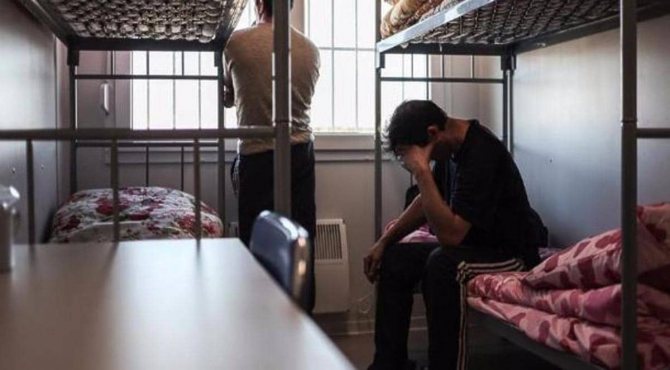
Temporary detention center for foreigners, photo: Muhojir.info
But there is nowhere to expel stateless persons. As a result, people spend months in such centers, and often the maximum period stipulated by the Code of Administrative Offenses is two years. Therefore, legalization is extremely important for them.
Legal punishments
In a situation where an offense is discovered upon entering the territory of the Russian state, or illegal actions are committed while a stateless person is on the territory of the Russian Federation, stateless persons may be punished with the following preventive measures:
- Administrative fines or imprisonment;
- Criminal liability (fine, correctional labor, or imprisonment);
- Expulsion from the state , with a ban on entry into the country for a certain period or for life, depending on the severity of the violation.
What should LBG do without documents?
Most former citizens of the Soviet Union do not have an identity card, so they are in Russia illegally.
At the moment, the Russian Federation does not issue identity cards to stateless persons. Several years ago this issue was raised at the state level, but then everything died down.
Now there is only an identification procedure. It is described in article 10.1 FZ-115 . It takes place in several stages: a stateless person submits an application to the Ministry of Internal Affairs and attaches documents containing his personal data. Then an inspection, interviewing witnesses and other procedures are carried out. Based on the results, a conclusion on identification is drawn up. In this case, the original remains with the Ministry of Internal Affairs, and LBGs are given only a copy.
However, why this procedure is needed is not entirely clear. Since the issued conclusion is not considered by law to be an identity document.
Accordingly, a stateless person cannot, for example, issue a temporary residence permit on this basis (although in some regions applications for temporary temporary residence permits with a conclusion are accepted). Only in some cases, in particular those provided for in Article 41.1 of the Federal Law “On Citizenship” (discussed below), does this procedure help in obtaining Russian citizenship.
How can a stateless person obtain a Russian passport without a temporary residence permit and residence permit?
Currently, Article 41.1 of Federal Law No. 62 . It is designed specifically for LBG - former citizens of the Soviet Union , including those who do not have identification documents. Under this article, citizenship is issued without first obtaining a temporary residence permit, residence permit, or proof of income.
The following can become Russians on the basis of this article:
- capable stateless persons who, as of September 5, 1991, had USSR citizenship and arrived in Russia to live before November 1, 2002 ;
- Children can apply for Russian citizenship (regardless of age);
- The article also covers adult incapacitated persons if they are under the guardianship of the person specified in the first paragraph.
The main requirements for the applicants listed above: they should not have citizenship or any legal status (for example, residence permit) in a foreign country.
There is another category of people that is included in the normative act. These are also former Soviet citizens who issued a Russian passport before July 1, 2002 . But subsequently their citizenship was not determined . On this basis, people who have citizenship of a foreign state .
If the applicant does not have an identification document, then he undergoes an identification procedure . Note. The law specifically states: people specified in the article will not be held accountable for violating migration legislation (regimes of entry, stay, etc.)

Article 10.1 of the Federal Law “On Citizenship of the Russian Federation”
The decision on granting citizenship is issued within six months . If a person undergoes an identification procedure, the period can be extended by another three months.
Other ways to legalize LBG in the Russian Federation
The remaining options are designed for stateless persons who have an identity document. They receive citizenship and passports according to the same schemes as any foreign citizen.
Registration through the Russian consulate
In migration legislation, namely in Part 1 of Article 14 of Federal Law No. 61, there is a basis that allows LBG to undergo the registration procedure through a Russian representative office in a foreign state.
That is, if a person lives, for example, in Ukraine, then he can come to the Russian consulate in this country and immediately submit papers for citizenship. Obtaining a Russian temporary residence permit and residence permit is not required.
You can use this scheme if:
- were previously a citizen of the Soviet Union;
- you are legally capable;
- recognized as LBG;
- have previously lived or currently live in one of the former Soviet republics, but have not received citizenship of this state.
Only applicants who never received any citizenship after the collapse of the Union can apply on this basis. That is, throughout their lives they had only Soviet citizenship.
On the same basis, you can become a Russian from the territory of the Russian Federation. But then you must first obtain a temporary residence permit and residence permit.
Obtaining a passport from Russia
All other methods of becoming a Russian citizen require that the person be legally in Russia. You must enter the country legally and register for migration here. Next, the stateless person goes through three stages:
- The first step is the process of obtaining a temporary residence permit (in some cases you can skip it ).
- The next step on the way to a passport is obtaining a residence permit.
- If you have a residence permit for LBG, the doors will open to apply for Russian citizenship.
A residence permit holder can become a Russian citizen in several ways:
- in general order
- simplified,
- through government programs.
How to get a Russian passport in general order
This method is designed for those LBGs who do not fall under the requirements for simplified registration. To apply according to the general scheme, you need to live permanently under a residence permit for five years. Previously, the Ministry of Internal Affairs will not accept the application.
Read on the topic: How to obtain citizenship if you have a residence permit
Simplified procedure
- GCitizenship
Simplified citizenship of the Russian Federation: methods of obtaining
- Elena Voropaeva
- 07.08.2020
Article 14 of Federal Law 62 provides the grounds that allow you to become a Russian faster. They can be used by both citizens of other states and LBG.
The main benefit is that with simplified registration, you can submit citizenship papers immediately after issuing a residence permit. Among the reasons, many stateless people find a suitable option for themselves. As we mentioned earlier, LBG - immigrants from the Soviet Union - can undergo a simplified procedure.
If you have a Russian parent, then this also gives you the right to a faster path to your passport. There are options for obtaining citizenship for Russian children and spouses.
See the table for the full list.
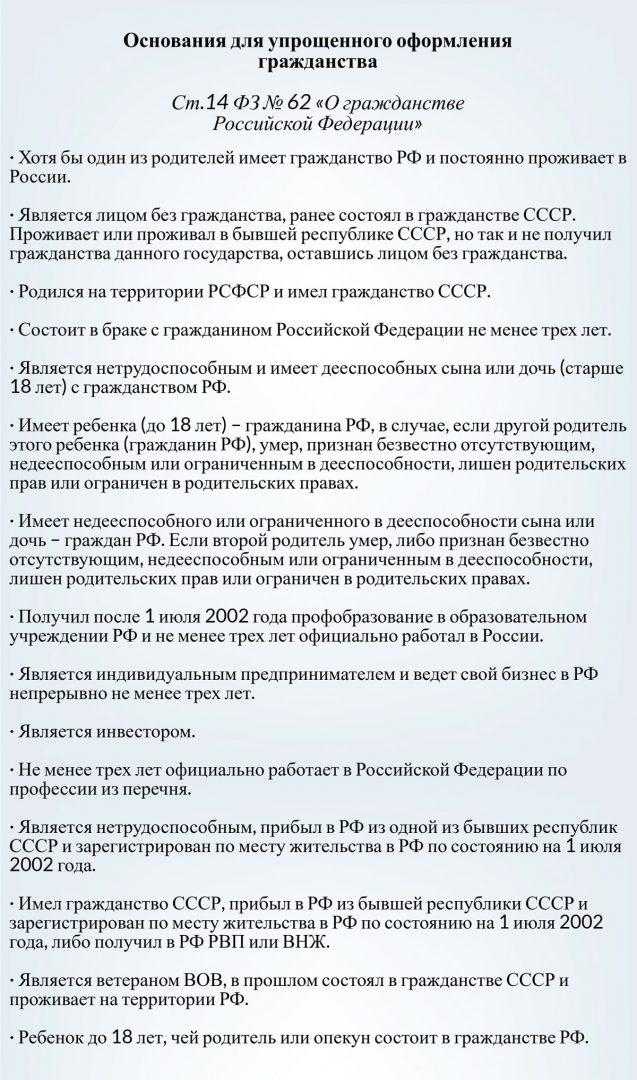
Full list of reasons
Passport through NRY
- GCitizenship
How to grant Russian citizenship to Russian speakers
- Elena Voropaeva
- 23.07.2019
The Russian Speaker Program is an excellent legalization option for people who became stateless as a result of the collapse of the Union. Through the project you can become a Russian citizen within a year. There are several conditions - you need to know Russian as your native language. Former Soviet citizens should have no problems with this.
Secondly, it is necessary that you or your mother/father, grandmother/grandfather, in general, one of your relatives in a direct ascending line, have lived in the past or present in the territory now occupied by the Russian Federation.
Summarize. Despite the fact that most stateless people come from the USSR, Russian legislation does not distinguish LBG into a separate category. In the eyes of the law, they are foreigners, so the requirements for them are the same as for foreign citizens. Legalization of stateless persons occurs in accordance with Articles 41.1, 13 and 14 of the Federal Law “On Citizenship”.
Subscribe to Migranta Rus: Yandex News.



